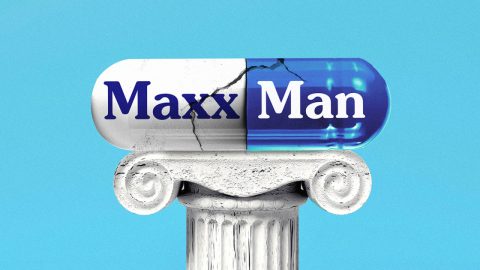
Health Secretary Robert F. Kennedy Jr. has in recent months teased a September announcement in which he would identify the cause of autism. This week, some close to the Trump administration and one major news outlet suggested Kennedy could point in the direction of acetaminophen use during pregnancy as one possible link.
The Wall Street Journal reported Friday that Kennedy was planning to announce a link between autism and Tylenol use by pregnant women, as well as autism and low levels of folate (an essential vitamin that helps the body produce cells), among other potential causes. NBC News has not confirmed that reporting.
Tylenol’s active ingredient is acetaminophen, a drug that is known as an analgesic, which can help with pain relief. Many over-the-counter drugs contain acetaminophen.
Andrew Nixon, a spokesperson for the Department of Health and Human Services, said in an email: “We are using gold-standard science to get to the bottom of America’s unprecedented rise in autism rates. Until we release the final report, any claims about its contents are nothing more than speculation.”
Kenvue, the company that makes Tylenol, said in a statement that “nothing is more important to us than the health and safety of the people who use our products. We have continuously evaluated the science and continue to believe there is no causal link between acetaminophen use during pregnancy and autism.”
Shares in Kenvue dropped sharply after the Journal published its article, falling more than 9% Friday.
At least two people close to the Trump administration teased the report earlier this week.
On Tuesday, far-right activist Laura Loomer posted to X that the use of Tylenol by pregnant women was under scrutiny by HHS. That same day, Dr. Robert Malone, whom Kennedy recently appointed to the Centers for Disease Control and Prevention’s independent vaccine advisory committee, said in an appearance on One America News Network that he thought Kennedy was preparing to link Tylenol, vaccinations and autism.
Doctors and researchers have spent decades studying acetaminophen, the active ingredient in Tylenol, and have broadly found it to be the safest option for pain relief during pregnancy. The bulk of the scientific literature suggests no link between autism and exposure to acetaminophen in the womb.
One of the more robust studies to date, published last year in the Journal of the American Medical Association, found that taking acetaminophen during pregnancy was not linked to autism, ADHD or intellectual disability.
Initially, when researchers looked at the general population, there was a very small increased risk of the disorder in children whose mothers took acetaminophen while pregnant. However, after the researchers compared siblings within the same family — one exposed to the drug during pregnancy, and the other not — they found no link.
“We were able to adjust for things that we saw that other people might have missed before,” said Brian Lee, one of the study’s authors and an associate professor of epidemiology at Drexel University.
Dr. Joshua Gordon, a psychiatrist and neuroscientist at Columbia University, said via email that there is some controversy in the field, but “it seems clear to me that the risk is low to non-existent.”
He added that “RFK Jr. and those he supports have a long history of ignoring very large scale, well-controlled studies such as [the JAMA paper], promoting findings from much smaller studies and those with suspect methods.”
The question came to the fore again last month when a literature review published in the journal BMC Environmental Health concluded there was likely an association between autism and acetaminophen exposure during pregnancy.
Walter Zahorodny, an autism researcher at Rutgers University who joined Kennedy in April for a news conference on rising autism rates, recently posted about the review on LinkedIn. Zahorodny said via email that he wasn’t familiar with HHS’ plans to release a report.
Santhosh Girirajan, who studies the genetic underpinnings of neurodevelopmental disorders at Pennsylvania State University, said the review wasn’t as well-conducted as the JAMA study. The CDC has estimated that 1 in 31 school-age children has autism. But Girirajan said autism rates would be much more prevalent if acetaminophen use was contributing.
“I’m very surprised how Tylenol comes up here,” he said, referring to the reported findings out of HHS.
“If it’s a review of all the body of literature on autism, genetics should be front and center,” he added. “That is what all the scientific community has come to agree with, based on evidence and replication over years, over decades.”
Dr. Christopher Zahn, chief of clinical practice at the American College of Obstetricians and Gynecologists, said in an email that pregnant people shouldn’t be frightened away from taking acetaminophen.
“Acetaminophen has long been established as a safe pain reliever for pregnant individuals during pregnancy,” he said. “Unfortunately, over the years, there have been several unfounded challenges to this fact, which have likely caused some confusion and concern for many pregnant individuals.”
Though Kennedy said in April that HHS would work to determine the cause of autism by September, medical experts generally agree that looking for a single cause is the wrong way to approach the issue. Autism is not a single disorder; rather, it can have a range of manifestations — some mild, others more pronounced. Scientists have also found a variety of risk factors — most of which exist before birth — for developmental disorders that affect how people interact, communicate, learn and behave.









Recent Comments